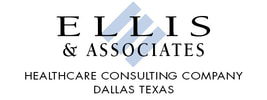|
www.FirstMEDPractice.com
This year I witnessed something unique in all of my healthcare experience: The closure of medical practices. Not since the HMO days decades ago did I sense such widespread anxiety about the future of the medical business. And it was not just doctor’s practices that have suffered—hospitals and other health care providers like mental and rural health care clinics and urgent care centers suffered. I can never remember a time when hospitals quit doing elective surgeries, or when orthopedics, ENT, primary care, dermatology, opthalmology and nephrology were hurting all at the same time. Listening to Doctor Radio on Sirius XM recently, I heard a brief conversation between the doctors bemoaning the fact that residents and fellows were having to enter the job market via Zoom, most unable to follow the more typical hiring processes of the visit, tour of facilities, interview with employer, a tour of available places to live, etc. As they noted, how could someone make the multi-year commitment a new job entails after a few Zoom meetings? Or how could employers make the same decisions? If you google “zoom job interviews” you find most of the recommended sites list the same generic rules: Wear a coat/tie, understand how Zoom works, chose a neutral backdrop, etc. Nowhere did I find any rules about how to structure the interview or make it possible to get all of the information necessary to making a good decision. And in these changing times, there’s more need than ever to ask some hard questions about the impact of the virus and how it might affect your first few years in practice. With little way to adequately prepare for the major changes in healthcare wrought by the virus one thing has happened: Weaknesses in practice models or necessary changes to them have brought about change in defining what makes a medical practice successful. And if you are considering job offers and employment opportunities, there are a few questions you must ask and make part of the interview process since the change of addressing these topics at a visit or anecdotal conversation has become less possible. My suggestion is that you submit, in writing, a group of questions that may have not been part of a typical interview before the virus. Here’s my short list of “must asks”:
And if you’ve already signed a letter of intent and have an employer selected, get these questions in front of them, now, to help you further assess the employment opportunity and what you’ve agreed to. The impact of the virus has been multi-faceted but has shown one thing for sure: Medical practice success no longer conforms to the old ways. Make sure you explore this aspect of a potential employer’s business model before in order to make a fully informed, confident decision about where to start your medical practice career.—Tom Ellis III—December 2020 Comments are closed.
|
I welcome your comments and thought. Please send to me at [email protected]Archives
May 2021
|
|
© 2023 Ellis and Associates
|

 RSS Feed
RSS Feed